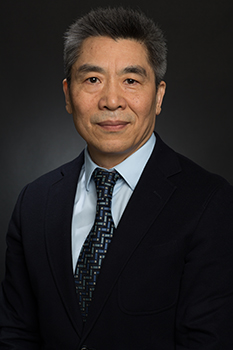
President of Fuwai Hospital
| Selected winner: | National Clinical Research Center for Cardiovascular Diseases, Chinese Academy of Medical Sciences Fuwai Hospital |
| Solution name: | Comprehensive intelligent hypertension management system for supporting patients and physicians (CHESS) |
| Origin of the winner: | China |
Fuwai Hospital belongs to the Chinese Academy of Medical Sciences and is also the National Center for Cardiovascular Diseases. It has become the world's biggest cardiovascular center, as well as a national center for clinical healthcare, medical research, disease prevention and education. It is committed in controlling the morbidity and mortality of cardiovascular diseases by setting up a network of prevention and control.
Comprehensive intelligent hypertension management system for supporting patients and physicians (CHESS)
The Comprehensive intelligent Hypertension managEment System for Supporting patients and physicians, or CHESS, is a multifaceted-intervention system comprising home blood pressure monitoring, an intelligent reminder and alert system, a clinical decision support system, and a data platform.
The intelligent voice and short message system will be initiated by elevated home blood pressure or bad compliance, remind to check blood pressure, compliant with medications, and assist in contacting their physicians directly if necessary. The clinical decision support system is embedded into the health information system in primary health institutions, providing individualized prescription or referral recommendation for primary care physicians. The data platform is used to monitor safety, observe the trends of blood pressure, and provide feedback for quality control purpose.
The CHESS system can be widely applicable to most of the primary health care institutions in China, and is expected to help increase the control rate of hypertension and finally reduce the burden of cardiovascular diseases, according to the developers.
The Challenge winners are solely responsible for their contributions and views. They do not necessarily reflect those of WHO. In no event shall WHO be responsible for the accuracy of information shared by any of the participants. These solutions were judged for their merits as novel, creative solutions but no specific technology assessment was applied, nor any endorsement in practice should be implied.




